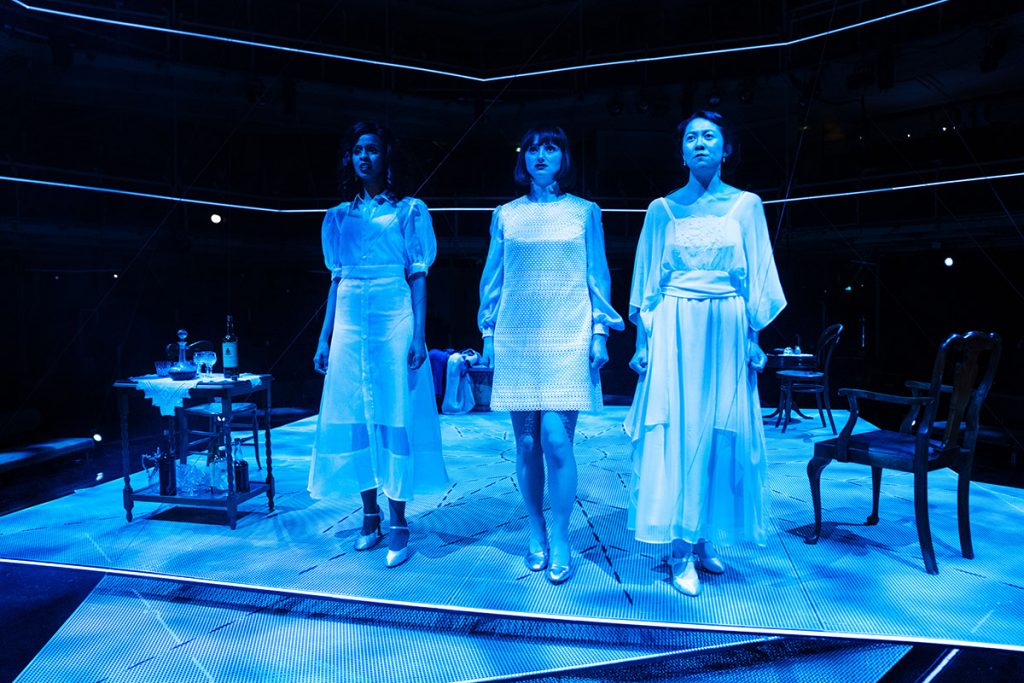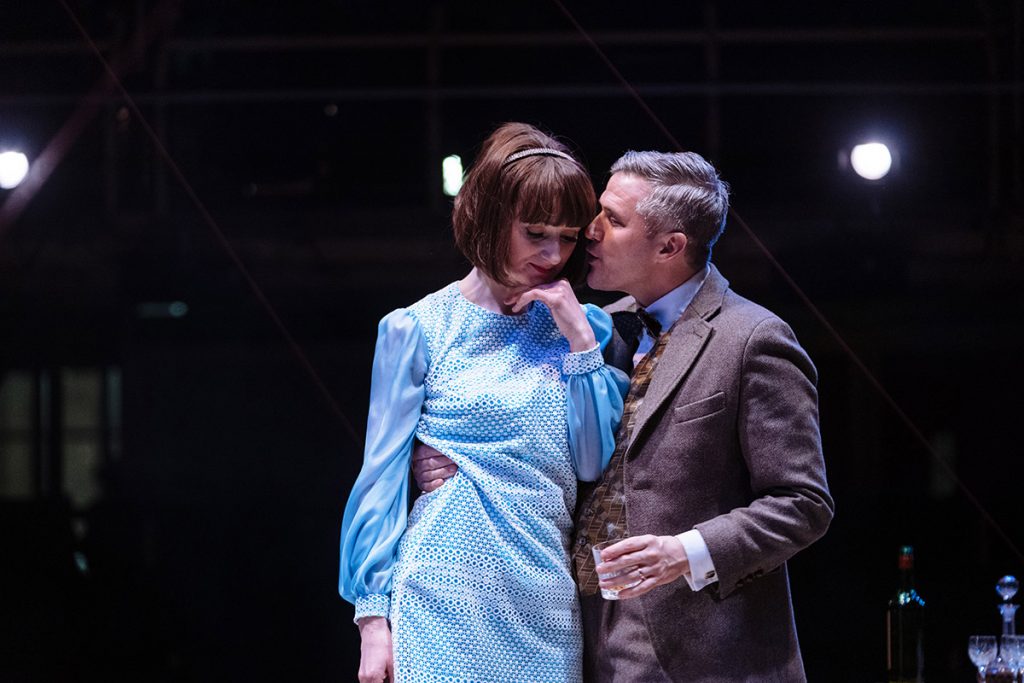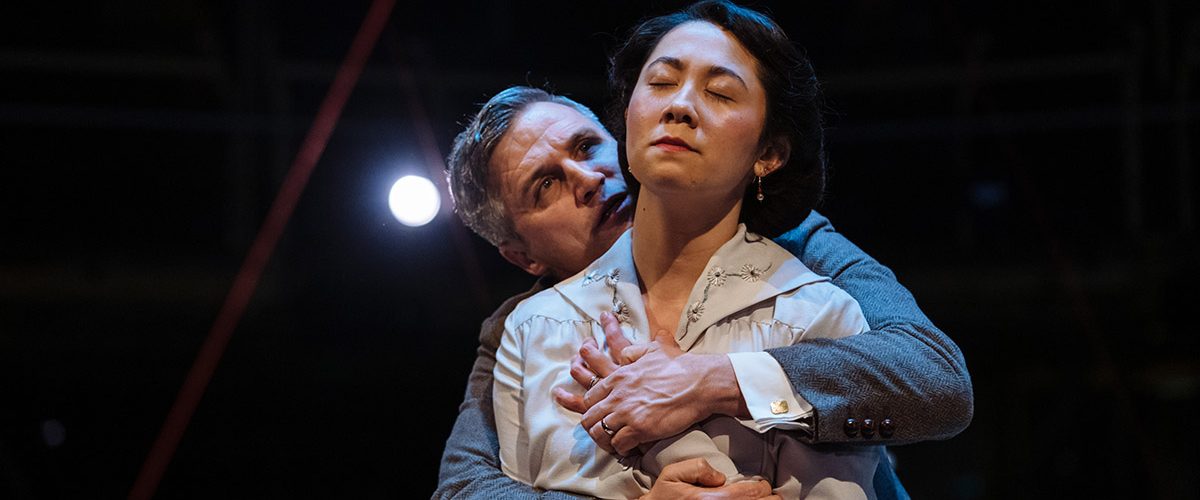Steve Timms finds Nora: A Doll’s House to be a bold, impassioned piece of work and the most thrilling Exchange production he’s seen in a long time.
Patriarchy is a word most people are familiar with, though may struggle to describe. So let’s try this: a culture which chooses to cede all power to a bunch of rich old white b***tards. What’s the role of women in such a world? Simple: to know their place. Biology means men will never truly understand the pressures women have to face, professionally and domestically – although a few have come close. ‘There are two kinds of moral laws, two kinds of conscience’, wrote playwright Henrik Ibsen, during the first production of A Doll’s House, ‘one for men and one quite different for women. In practical life, woman is judged by masculine law, as though she weren’t a woman but a man. A woman cannot be herself in modern society.’
Remarkably, he wrote that in 1879. A Doll’s House – and sister play Hedda Gabler – have endured and remain relevant thanks to Ibsen’s gift for creating psychologically complex female characters. Is the former in need of a makeover? If it isn’t broke, don’t fix it. But with Nora: A Doll’s House, writer Stef Smith has decided to take a leap into the unknown, creating three very different Nora’s, all living in different eras and connected by male oppression.

The years are 1918, 1968 and 2018. Nora tries hard to be the perfect wife, the perfect mother and the perfect homemaker. Years ago, she decided she wanted her whole life to smell like lavender – a romantic notion. ‘You’re my little songbird’, co-dependent husband Thomas keeps repeating. She readily accepts Thomas’ need to cosset and suffocate. ‘I’d rather choose happiness over the truth’, she confides in friend Christine. How does Nora soothe her broken self? With pills, booze and scratch cards. Underneath Nora’s mask of perfection, lies a silent scream. Finding herself at an impassable crossroad – and with the secrets she has sworn to keep, bubbling to the surface – Nora is forced to make a radical decision about her future.
Billed as a muscular domestic thriller, Nora: A Doll’s House is a bold, impassioned piece of work, and in some scenes, genuinely gripping. There’s so much going on, it’s sometimes hard to keep up. In the view of poet, Emily Dickinson, ‘hope is the thing with feathers.’ If only it were that simple; ‘Hope can be so cruel’, says Nora’s dying friend, Daniel (an excellent Naeem Hayat). The tipping point for Nora is the rhetorical question: ‘what if love’s not enough?’
The three Nora’s – Yusra Warsama, Jodie McNee and Kirsty Rider – are all clearly defined, each with her own rhythm of denial and self expression. Andrew Sheridan, a Royal Ex regular, is quietly chilling as money-lender Nathan, and gets some of the best lines: it’s easy to see the DWP adopting ‘Debt is a form of death’ for a future Universal Credit campaign. It’s also good to see William Ash back here: an underrated actor, and a familiar face to fans of Channel 4’s Wanderlust, and the Beeb’s Waterloo Road.
A patriarchal culture will go to great lengths to prevent women uniting around a common cause. Look at how loudly rape victims have to shout to be heard. How survivors of predatory behaviour have to fight for justice (Donald Trump now has over twenty accusers, in cases dating back decades, but has never faced any meaningful consequences). Look at the way the Met Police treated the women who attended the Sarah Everard vigil. Sickening doesn’t even cover it. So it’s no wonder director, Bryony Shanahan is eager to get the three Nora’s on side as soon as possible. In the chorus moments, they bridge the chasm of time, and join forces like a trio of mind-hive Ninjas. All well and good, though this sense of physical intimacy would have greater impact if saved until later. Nora is used to flying solo; asking for help might only occur when her back’s to the wall.

The centrepiece of Amanda Stoodley’s set is a collection of thin vertical strands; a web which stretches as the play reaches its conclusion. Thomas ends up stranded in the middle as the web snaps, and it’s to him that the three Nora’s direct their rage. Although he’s boring and controlling – and values work more than his wife – surely he doesn’t deserve to be made a scapegoat. Thomas is as much a victim as Nora. He doesn’t even get the right to reply (how might he defend himself? ‘My dad didn’t love me enough!’) Dramatically, Shanahan’s dilemma is simple: what’s the most effective visual motif to represent hundreds of years of female subjugation? A big question, and I don’t have an easy answer but this current ending didn’t quite ring true.
The split narrative mostly pays dividends, and writer Smith has created a text made from fertile soil; it’s easy to see this play being restaged, with further layers added, in future productions. Eighty per cent of Nora: A Doll’s House is fantastic. Whilst not yet a classic, it’s easily the most thrilling production I’ve seen at this theatre in a long time.
Nora: A Doll’s House is at the Royal Exchange Theatre, Manchester from 4 March to 2 April 2022.





